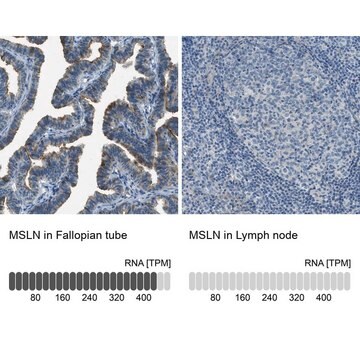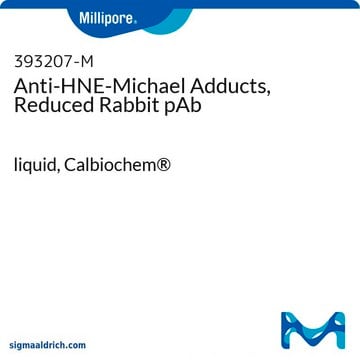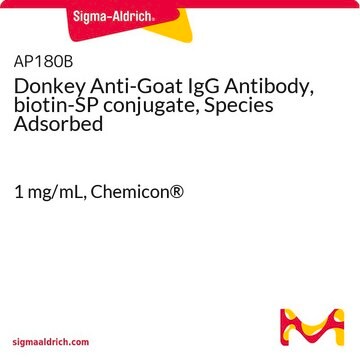MABC1140
Anti-Mesothelin Antibody, clone MN-1
clone MN-1, from mouse
Sinónimos:
CAK1 antigen, Pre-pro-megakaryocyte-potentiating factor
About This Item
Productos recomendados
biological source
mouse
antibody form
purified antibody
antibody product type
primary antibodies
clone
MN-1, monoclonal
species reactivity
human
packaging
antibody small pack of 25 μg
technique(s)
ELISA: suitable
flow cytometry: suitable
immunohistochemistry: suitable (paraffin)
western blot: suitable
isotype
IgG2aκ
NCBI accession no.
UniProt accession no.
target post-translational modification
unmodified
Gene Information
human ... MSLN(10232)
General description
Specificity
Immunogen
Application
Flow Cytometry Analysis: A representative lot detected Mesothelin in Flow Cytometry applications (Onda, M., et. al. (2005). Clin Cancer Res. 11(16):5840-6).
ELISA Analysis: A representative lot detected Mesothelin in ELISA applications (Onda, M., et. al. (2005). Clin Cancer Res. 11(16):5840-6).
Western Blotting Analysis: A representative lot detected Mesothelin in Western Blotting applications (Onda, M., et. al. (2005). Clin Cancer Res. 11(16):5840-6).
Immunohistochemistry (Paraffin) Analysis: A representative lot detected Mesothelin in Immunohistochemistry applications (Onda, M., et. al. (2005). Clin Cancer Res. 11(16):5840-6; Inaquma, S., et. al. (2017). Oncotarget. 8(16):26744-26754).
Apoptosis & Cancer
Quality
Immunohistochemistry (Paraffin) Analysis: A 1:250 dilution of this antibody detected Mesothelin in human fallopian tube tissue sections.
Target description
Physical form
Storage and Stability
Other Notes
Disclaimer
¿No encuentra el producto adecuado?
Pruebe nuestro Herramienta de selección de productos.
Certificados de análisis (COA)
Busque Certificados de análisis (COA) introduciendo el número de lote del producto. Los números de lote se encuentran en la etiqueta del producto después de las palabras «Lot» o «Batch»
¿Ya tiene este producto?
Encuentre la documentación para los productos que ha comprado recientemente en la Biblioteca de documentos.
Nuestro equipo de científicos tiene experiencia en todas las áreas de investigación: Ciencias de la vida, Ciencia de los materiales, Síntesis química, Cromatografía, Analítica y muchas otras.
Póngase en contacto con el Servicio técnico








